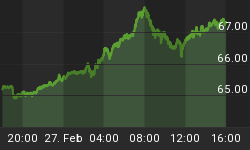There can be little doubt that the US economy is in uncharted waters. The crash of 2008 and the US government's response -- and the world's response, for that matter -- were unprecedented, which means that many of the old rulebooks get thrown out the window.
With markets having stabilized and rising, however, the search is on for the next great bubble, the asset class that will be the recipient of worldwide money printing efforts. The famed Milton Friedman, a monetarist, did argue that after a small lag an easy money policy would bring on a sharp recovery in stocks and the economy.
While we are not so convinced about a long-lived economic recovery given the nature of this collapse, a case can be made that the enormous quantity of new money could act as fuel for a continued stock market rally. If that is to be the case, we needn't look very far for which stocks to own.
Newly printed money always flows somewhere, and not necessarily where governments want it to flow. That said, government can lay a foundation that increases the probability that new money will flow where it ultimately wishes for it to flow -- the so-called "good inflation" of stocks and real estate, and away from where government decides it doesn't wish for it flow, the so-called "bad inflation" of consumer prices, metals and commodities. Good vs. bad inflation is a silly notion of course, as there is only inflation and it is not a good thing, but it does illustrate quite nicely how government doesn't think.
For example, the 1990's came with the Y2K phenomenon, and therefore easy money from the Greenspan Fed flowed unencumbered into the NASDAQ and technology stocks. The dollar rallied during that decade and gold declined to its low in the mid-$200 range by 1999. It was to be a "new era," where problems of the past, such as inflation, would be buried for good, along with the barbarous relic that is gold.
This decade, we witnessed the epic housing bubble, which "bailed" the country out of the stock market collapse of 2000-2002. With tax breaks for homeowners, low interest rates, Fannie and Freddie, and President Bush telling Americans to go out and buy a home, it is easy to see how government policy tilted the playing field, allowing for easy money to flow into real estate.
But note the key difference, and more importantly, the trend change. Unlike the 1990's, gold and the dollar went in opposite directions in the 2000's, offering up an important clue to astute investors: government would be unable to hide the inflation it was, and had been, creating. Thus, expectations had changed, and gold started to move higher as a result of those changed expectations.
Therein lies a critical point. Despite the fact this decade witnessed an enormous housing bubble, i.e., government got its way and was successful at creating another "good" bubble recipient of its money printing efforts that temporarily bailed out of the economy, some of the new money nevertheless flowed into precious metals and commodities as well, taking gold up almost five-fold hitting a little over $1000 per ounce. Money flowing into gold was a result of the change in inflationary expectations, a trend that, given the trillions of new dollars that today are flowing from the Federal Reserve, remains firmly intact, if not accelerating, in our opinion.
We are therefore not sweating the search for the next great bubble, and sticking with the theme that has done quite well so far this decade. Of course, one can only imagine the returns if there is no "good" bubble to inflate with the trillions upon trillions of new dollars this time.















